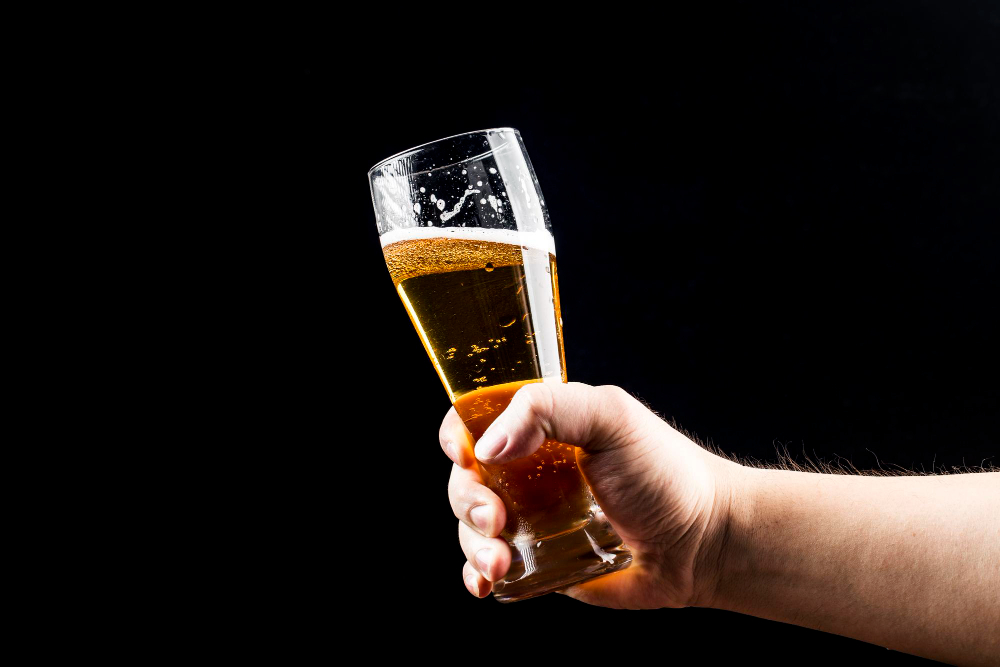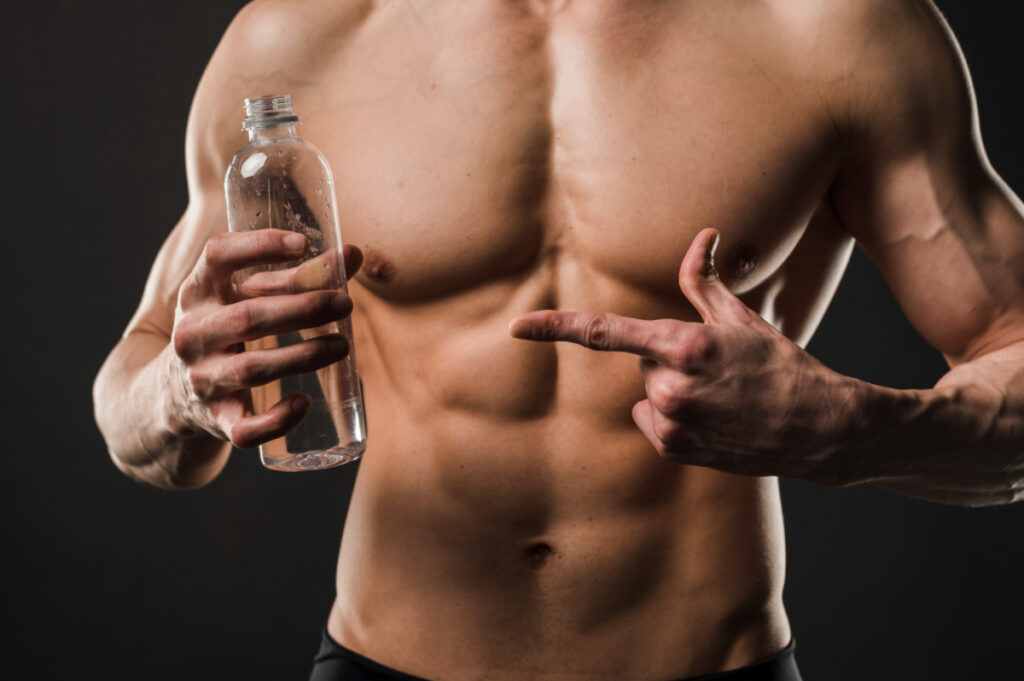Being healthy doesn’t often exclude having some fun. This includes drinking, especially for an exciting Friday night or if you want to hit the bar for no reason. However, when following a strict muscle-building session with workouts and supplements, perhaps alcohol won’t be a good match.
Of course, alcohol has some side effects on the body, which can hamper a fitness program. So, what about BCAA and alcohol together?
BCAAs (Branched-Chain Amino Acids) and alcohol interact in the body, with alcohol consumption potentially reducing the availability of BCAAs for muscle synthesis and increasing their breakdown, leading to muscle wasting. Alcohol can also disrupt the normal balance of BCAAs, causing an accumulation in the bloodstream and inhibiting their utilization by muscle tissue.
Read on to learn whether you should avoid drinking altogether or have a chance to continue doing both.
BCAA and Alcohol
The effect of alcohol consumption on BCAA metabolism can be complex and multi-faceted. Alcohol has been shown to interfere with the metabolism of BCAAs, a group of essential amino acids that play an important role in muscle growth and repair. However, the amino acid have some common side effects, like acne.
Effect of Alcohol on BCAA Availability and Muscle Wasting
When alcohol is consumed, it is metabolized in the liver, where it competes with other nutrients, including BCAAs, for oxidation and utilization. As a result, alcohol can reduce the availability of BCAAs for muscle synthesis and can increase the breakdown of muscle tissue, leading to muscle wasting, especially in alcoholic cirrhosis.
Influence of alcohol on BCAA levels in the body
Alcohol consumption can also disrupt the normal balance of BCAAs in the body. The branched-chain ketoacid dehydrogenase complex, which is responsible for the oxidation of BCAAs, can become inhibited, leading to an accumulation of BCAAs in the bloodstream and a reduction in their utilization by muscle tissue.
Moreover, alcohol consumption can also increase oxidative stress, leading to muscle damage and further exacerbating the impact of alcohol on BCAA metabolism.
Uses of Amino Acid after a Hangover
So, how can BCAA or other amino acids help to remove hangovers after drinking? It can work in different ways to make it happen.
Effective Breakdown of Alcohol
Amino acids like alanine and glutamine make glucose for energy. When this happens in the body, the coenzyme nicotinamide adenine dinucleotide will break down and absorb alcohol in the liver. So, amino acids will allow the liver to decompose alcohol faster.
A randomized study found BCAA supplementation is useful in preventing progressive hepatic failure among alcoholics.
Metabolism of Alcohol in the Liver
Since hangover happens due to Acetaldehyde, amino acids speed up the metabolism of alcohol. Again, alanine and glutamine will reduce the concentration of Acetaldehyde by breaking it faster. So, you relieve from hangover easily.

While taking amino acids can be a remedy to absorb alcohol better, it won’t help if you overdrink. The functions of amino acids with alcohol in the blood. Too much alcohol can reduce liver regeneration.
How Does Alcohol Damage Muscle Buildup from Supplements?
A fun night with rounds of alcohol is what you might desire, but this isn’t fun for your muscles. Firstly, each drink will gain 7 calories with no essential nutrients. For instance, vodka has 100 calories! Besides, alcohol will lower your metabolism and increase your appetite to eat unhealthy foods.
Other harmful effects include:
Increase in Dopamine Levels
You will have a rise in dopamine which will further decrease melatonin. So, with alcohol, you suffer from sleep disorders. When you can’t sleep, you will feel more hungry and eat more. Besides, alcohol inhibits the burning of fat. So, high dopamine leads to insomnia and an increase in weight.
Dehydration
Alcohol also reduces anti-diuretic hormones in the body, which will cause dehydration. Your body will absorb water from the body and cause you to urinate more. So, fluids are lost when you consume alcohol. This also affects muscle gain since your muscle cells won’t have enough water to grow. Dehydration can also make you lose weight and vomit.
Hampers with Muscle Growth
Protein synthesis to reduce muscle stress and repair tissues don’t work with alcohol. Alcohol will decrease hormone production that would allow protein synthesis. Regardless of how much alcohol you consume, it weakens the muscle fibers to help grow muscles. So, even with the supplement you take for energy or repair, it won’t have much effect.
Reduction in Testosterone Level
Testosterone is needed to help the muscles grow and repair efficiently with supplements. But alcohol causes a relative increase in high-density lipoprotein cholesterol that lower testosterone in the blood. In addition, estrogen level increases significantly. This hormonal imbalance in males is a big issue for those taking supplements to gain muscles.
BCAA After Drinking Alcohol
Generally, drinking alcohol after or before a workout isn’t desirable as it will affect performance. You can take BCAA after a drink but in low amounts. While some studies showed that alcohol could increase BCAA concentration in blood for efficiency, this isn’t good for overall health.
This is because if you don’t control the number of drinks you take, BCAA won’t be useful. You can’t work out intensely, and the muscles won’t grow or repair faster. It will weaken the muscle tissues.
However, after a drink, taking BCAA will break down acetaldehyde and let the liver digest alcohol to remove its effects faster.
Alcohol and Protein
You can’t mix your protein supplement with any alcohol to make a shake. It won’t be effective.
Alcohol would slow down protein synthesis and counter the functions of the supplement. So, your muscle-building and repair will be slow as well. This is especially harmful if you take alcohol and protein after a workout.
But you can choose some drinks that are said to have protein. Some brands have alcoholic drinks with a little protein, similar to protein energy drinks.
Beer and BCAA
Beer also falls in the category of alcohol and can have similar effects. While a can or two before exercise and taking supplements can help to increase protein synthesis with an increase in testosterone, this will have a counter effect with too much beer. So, to build and recover muscles, you will need to maintain the amount of beer you drink. A can a day is alright when you take BCAA.

It won’t help either if you drink beer after a workout. Beer can’t increase muscles or help BCAA to function efficiently.
Whey Protein and Alcohol
If you are taking whey protein, this also means that you are hitting the gym for intense workouts or training sessions. The main goal here is to gain muscles and energy.
Your training and muscle growth will slow down when you consume alcohol. Whey protein can’t help you, either. The combination of alcohol and whey protein would affect muscle cells even if you take them at different times. They won’t repair and grow to increase muscle mass.
Besides, your liver will have a lot of stress from alcohol and heavy training. Overall bodily functions will slow down as well.
Drinking Men’s Routine for BCAA
If you love drinking but still want to gain some muscles with supplements, here are some things you can do. Strict maintenance will ensure that the two don’t get in each other’s way and hinder your goals.
- You can have one to two daily drinks if you weigh less than 80 kg.
- Eat a lot of protein and drink water before drinking alcohol. Drink water afterward as well.
- Don’t work out on the days you drink.
- Keep track of the number of drinks you have and the type. The amount of beer and wine can’t be the same.
- Eat a lot of vitamins, and also take mineral supplements with BCAA.
- Maintain a balanced diet with 309g of carbohydrates,101g of fat, and 240g of protein to meet around 2,951 calories.
- Take BCAA after a workout and when you are done with drinking for the day. BCAA can then break down alcohol for liver regeneration.
Other Supplements to Remove Hangovers
Like amino acids, you can try other supplements to eliminate nasty hangovers.
- Electrolyte Plus
- Electrolyte Caps
- Acetyl Carnitine
- Vital Pre Mix
Check the differences between BCAA and Electrolytes.
BCAA Mocktails to Try
Luckily, alcohol isn’t cut out when you are on BCAA. Instead of getting your favorite stacks, why not try some mocktails that would taste great, offer the essence, and bring a summer freshness? Mocktails are also less harmful compared to glasses of whiskey or vodka.
Take some fresh fruits like berries and lemons, BCAA, and soda water or ginger ale for the following recipes.
- Fruit punch sangria
- Ocean breeze cocktail
- Mixed fruit mojito
- Watermelon cocktail
- Lemon and lime mix drink
FAQ
Does alcohol affect amino acids and vitamin absorption?
Too much alcohol in the blood is harmful to the body. It will hamper regular digestive functions. Any consumer will lack important nutrients, especially vitamins and amino acids. Alcohol will reduce their absorption and use.
Can bodybuilders drink vodka?
Bodybuilders eat a lot of protein and take supplements to gain more muscle. But with vodka or similar drinks, the process can’t be smooth. Alcohol would reduce protein absorption and other important nutrients from supplements to carry out intense training. Besides, too much vodka can also increase fat.
Is it ok to drink alcohol with Herbalife?
To drink alcohol with Herbalife, ensure that the number of drinks is low. Drink with a full stomach before taking Herbalife. If you don’t suffer from any side effects in the liver due to Herbalife, then a moderate range of alcohol is alright.
Summary
All in all, the key is to control the number of drinks or cans of beer when you are taking BCAA. Your liver can flush out alcohol faster and continue with regular digestive functions. Then you can also carry out exercises to build muscles efficiently with BCAA. The muscle tissues will repair faster.
Increased drinking and alcohol addiction are harmful to anyone, whether or not you take supplements. You don’t remain hydrated enough to run through the day. So, if health is your concern, your consumption should decrease.
Talk to a nutritionist about dietary supplements and maintain a strict diet plan where you can squeeze in a drink or two.

I started my professional career as a sports medicine consultant in Rola, Missouri. My primary role was to suggest suitable supplements for my patients according to their pre-existing conditions and lifestyle goals. I believe a healthy lifestyle is the most important if you want to make your life really meaningfull.


